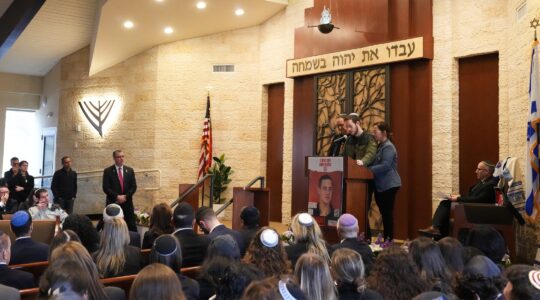Greek Jews are protesting Salonika’s decision not to apply for status as a “marytred city.”
More than 50 places are on a Network of Martyred Cities and Villages of Greece 1940-1945. The list is being compiled to honor the victims of the Nazi era, regardless of religion, and for educational and historical purposes.
In a letter to the Salonika municipality, the Central Jewish Board of Greece wrote that the decision “was not only an insult to the memory of the Jews but a reminder of sad times of the occupation, which some want to forget because they were the victims and other want to forget for their own reasons.”
On July 17, the opposition party Salonika for its Citizens and Ecology tabled a bill that would include Salonika. The municipality’s ruling faction, headed by Mayor George Papageorgopoulos, rejected the bill with the explanation that the murder of more than 90 percent of Salonika Jews during World War II were committed not in the city but in death camps, and that Jews have lived in the city only for 500 years.
The board’s letter calls on Papageorgopoulos to reconsider his decision and have Salonika inducted in the network.
On the eve of World War II, more than 55,000 Jews lived in Salonika. The Germans entered the area in April 1941; the Jews of Salonika were deported to Poland nearly two years later.
Local media criticized the decision as an abomination, an insult to the memory of the Jews and lacking in fundamental knowledge of history.
According to historians, Alexandrian Jews first arrived in Salonika in 140 B.C. During the 15th and 16th centuries many Jewish exiles from Spain, Portugal, Italy, Sicily and France, as well as refugees from North Africa, settled in Salonika. Today about 1,000 Jews live there.
JTA has documented Jewish history in real-time for over a century. Keep our journalism strong by joining us in supporting independent, award-winning reporting.





